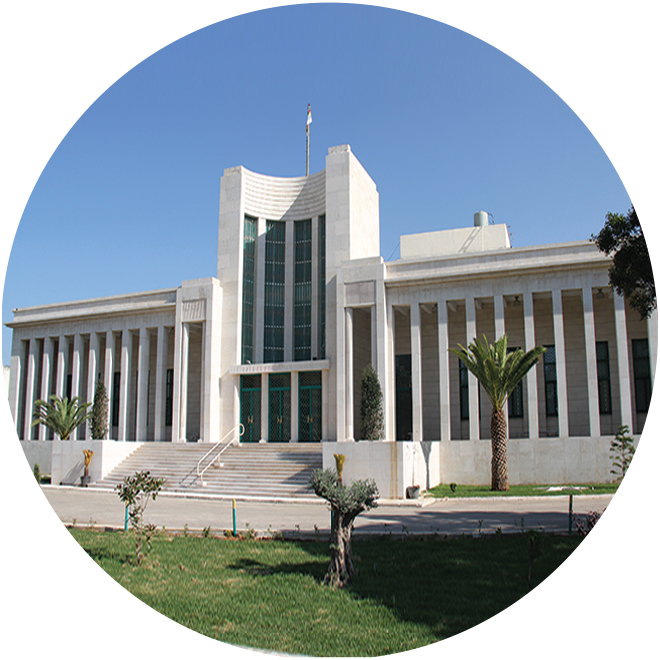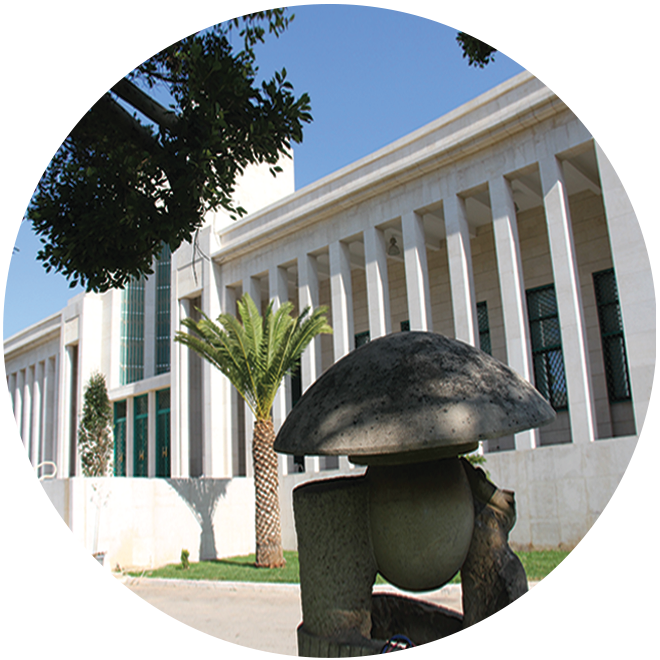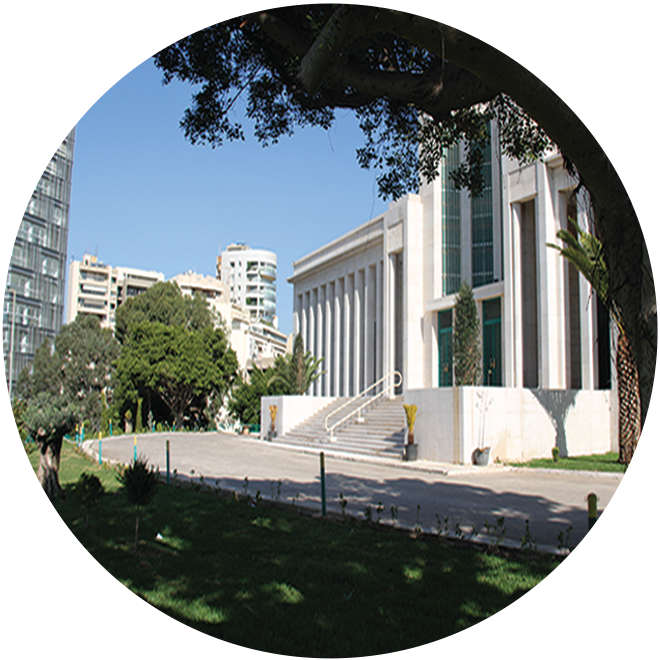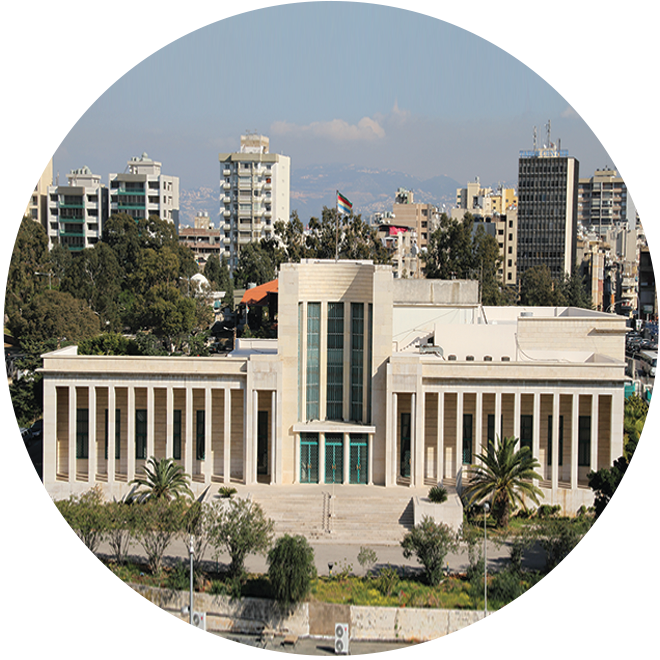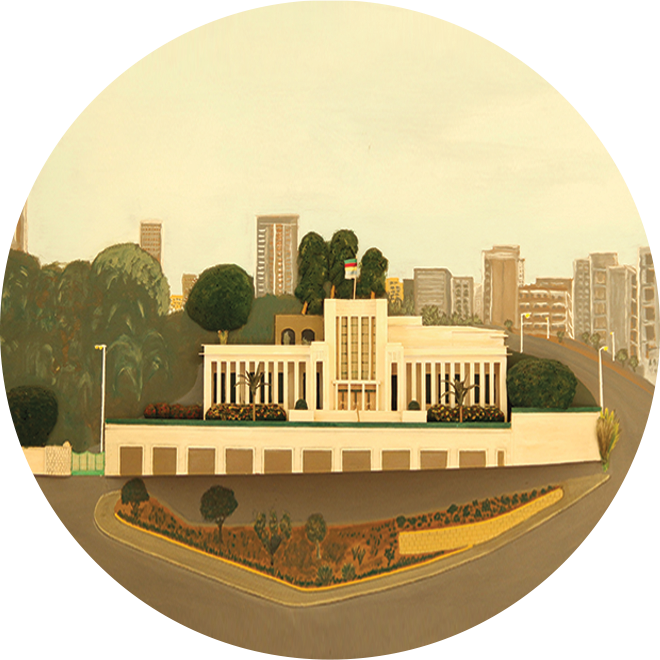A glimpse into the history of the religious monuments of the Druze Unitarian Community
And whether the meaning of the monument is the subject of the stone in which a trace of his foot is present, or the whole house as some have interpreted the meaning. However, the meaning stabilizes the significance of the determination of the blessing place to be a reference to the people which they visit and demonstrate acts of obedience, righteousness and honesty. In this context we stand on the meaning of the religious monument as a whole.
The most important evidence of the concept of "Maqam" (monument) in the Sunni religious values and its spiritual implications is that many of them do not include the remains of the "eye" that God has given to His mercy. Rather, the construction has been created in many cases for the existence of an impact or a remarkable event in history. So the "monument" comes to immortalize the meaning or the event.
Branches of meaning:
Islamic civilization in its spiritual face, especially in the first four centuries of migration, has broad horizons for what can be called the "spiritual space of the text." The connection of religious science to human action, behavior and emotional verification - in the sense of deepening the requirements of obedience and not only the duties imposed – has lead to the emergence of the homes of worshipers in view of the sincerity of their intentions, and the stability of their paths, and their persistence in the doors of knowledge and verification, and the application of their words by actions. These are the "trustees" that is, the trustworthy in their homes and movements, in their words and their thoughts, in their visible and inner ways, which are often visible to people, and the most thoughtful to those who embrace insight and goodwill. And if the religious people shall be endowed with the "activity of souls, discipline of the prey, purity of secrets, stripping of worship, rush to good things." the "trustees" are beyond verification of the "purity of hearts, and taking into account the secrets, keeping promises, and lack of attention to the symptoms, and the level of secret with advertising, and good behavior in the attitudes of demand and proximity.”
These people, with their powerful spirit, sincerity and serenity, received a lofty status that distanced themselves from the spiritual condition of the majority of people from the pursuit of life, which distanced many from the above spiritual path. It is a matter of the nature of things that the heart that is submerged in the light of faith is related to the good intentions of such people in terms of the fact that they are, by God's grace and virtue, an example of deep-seated concepts of supreme values and high moral ideals and the beauty of virtue. They are a good role model for society, especially when the power of money prevails over the hearts and minds of people.
This happened in ancient times with the prophets, the faithful and truthful servants of God, that earth disposed from their presence and their true testimony. This happens with the lower classes of the great virtues followed by the good biography and the right approach in the light of the rules of Islam and the teachings of the Holy Quran, away from the impurities of opinion and measurement, and follow the Sunnah of the Prophet, peace be upon him.
"Maqamat" (Monuments) at the Unitarians:
Monuments are therefore adopted for spiritual purposes in the ultimate purpose, and for social purposes that are connected to it, as an expression of the society's need to be linked to the values, virtues and high morals that consolidate its established foundations generation after generation.
The monument is also called a shrine, in terms of the people's intention to visit and to pray for invocation, humility and prayer, in order to express their attachment to the virtues of the merits, and their spiritual attachment to the symbols of righteousness and uprightness, and to pray in this blessed space to the face of God. With mercy and conciliation, as intended by the believers to revive the night of the male and recitation of the verses of God evidence.
Each "monument" has its own history and story related either to the stories of some of the prophets, or the life of one of the noble dignitaries, or contains the dust that remains of one of the righteous who are known by their rules of command, prohibition and virtue.
One of the oldest public monuments in Lebanon, "including but not limited to," the monument of Prophet Ayoub, at the bosom of a high mountain, overlooking the town of Niha / Shouf, reminding us of the virtue of patience and the blessing of satisfaction and acceptance. In addition to the monument of the "Lady Shouana" in the western Bekaa, which reminds us of the worshipers who used to live in the caves as they left the joys and fancies and determined to continue their journey in faith and unification.
One of the monuments related to the Unitarians in Lebanon are "Prince Jamal El-Din Abdellah El-Tannoukhi" in the town of Abey, as he is the scientist of wisdom, the great social reformer, and the person who has risen to a national heritage. Some historians designated him as the bright mark that has arisen during the dark eras in the history of Lebanon. This monument has a special place in the hearts of the Unitarians and is considered as one of the most beautiful heritage monuments.
The town of Ein Atta in the valley of Taym contains the monument of Sheikh Al-Fadil, a religious figure whose spiritual status is considered to be following the status of Prince Al-Sayyid over the last five centuries. Sheikh Al-Fadil is considered as a model of modesty, asceticism, worship, science and knowledge, knowing that Sheikh Al-Fadil has visited and lived in several places such as "Koukba" and "Showaya".
These monuments are considered to be the oldest shrines of the Unitarians in Lebanon, as well as a kind of special selection in the memory people on a public basis in general, and on an individual basis especially, for the conditions of the people of praise, religion and belief. This is what motivates people’s soul to perform good actions on the one hand, and motivates their social field on the other hand. This motivation is made through the spiritual impact of the virtues, and thus, sensing the need of the Spirit to have a good knowledge in God the Almighty, and to consider these Excellencies, their lives and their means as a way to get to know the facts of religion and great faith. As well as through the provision of charity and donations, and revive the spirit of initiative to righteously give and work within the society. In fact, in this era of propensity and selfishness, these places, full of meanings and symbols, appear to be some green fields full of humanity and elegancy.
Finally, in Unitarian education, there is a firm concept that the light of guidance does not open to the world in a blink of an eye, and that without these continuous periods, ethics and morals would have faded and disappeared, and the wisdom along with the control of existence would have declined. May God the Almighty keeps us away of such matters.
Spiritual grace is only reached by human walking in the road of perfection, whose God has extended to his people in a hierarchy and historical phases; as the laws that come down in a ring connected in a chain of blessed revelation and once this ring is over, the chain will be untied.
It is said, "We have revealed to you, as we have revealed to Noah and the prophets after him, and have revealed to Abraham, Ishmael, Isaac, Jacob, the tribes, Jesus, Job, Jonas, Aaron, Solomon, and Atina Daoud Zubra.”
In Lebanon, this unique combination has amazed the world and offered an experience that may not be repeated through the intermingling of the minaret with the dome of the church, as well as the ability of the individual to choose the holiday customs of several religions in one spot. It is the grace that we must preserve and thank for its permanence, so that God remains in our hearts, the homeland in our conscience, the human in our treatment, our prayers and your prayers, hoping to guide those who are lost.









